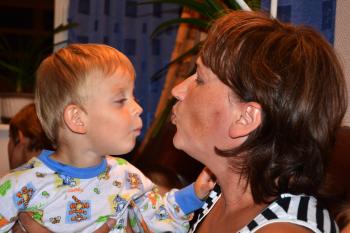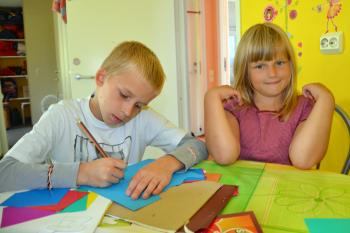The high unemployment rate means many families are struggling
-M-Magi-60571_jpg.jpg?width=800)
Bauska is located 65 kilometres south of Riga, near the border with Lithuania. The town is home to around 10,000 people. The local government is trying to increase the number of visitors to the area in order to boost the local economy and improve the standard of living of the population.
Officially, the unemployment rate in Bauska is 12.9 per cent, but experts believe it to be higher. The high level of unemployment is a problem, forcing people to look for work in other towns, or in some cases to move abroad.
Unemployment can lead to a number of other problems which adversely affect the lives of children. People without a job are often dependent on social welfare, but due to the recent financial crisis there have been cuts in the amount of money directed towards social programmes. Some parents lack the necessary skills to care for their children, and because there is no regular contact with social workers, these families are often not identified or supported in time. In more extreme cases, children lose parental care due to alcoholism or abuse.
The governmental cuts have also affected education. There is a lack of funding for teacher training, and some schools, particularly smaller ones, are shutting down. Likewise, there is an increase of school absenteeism but few resources to address the problem.
An increase in the number of children needing protection
In the majority of cases, Latvian children who lose parental care continue to be placed in institutions. As the number of children needing long-term care increased, SOS Children's Villages responded by creating two more SOS family homes in Bauska. Young people face many difficulties as they look for their first job and own home, and our SOS Youth Programme has expanded in order to meet the growing needs of the young adults who are ready to leave the SOS village.
What we do in Bauska
-M-Magi-60562_jpg.jpg)
SOS Children's Villages works closely with the local community. If children can no longer live with their families, they can find a loving home in one of the twelve SOS families in Islice and one in the nearby town of Iecava, which provide a stable and loving home for children who have lost the care of their parents. The children are fully integrated into the surrounding community as they attend the local schools alongside children from the area. SOS Children's Villages gave financial support to the local primary school in Islice for a few years, thus enabling the municipality to improve and modernise the school's equipment. With the help of SOS Children's Villages, the primary school Islice was able to buy up-to-date computers.
There is playground where the children from the neighbourhood join the children from the SOS Children's Village to play and have fun together. Some children attend specialised schools, and all children in our care are offered support according to their needs, be it with their school work or with therapy. Many after-school activities take place in the neighbourhood, and many activities that we organise in the village are well attended by local children.
Until 2012, SOS Children's Villages run a kindergarten, where both local children and those from the SOS families could be cared for. This is now run by the local municipality.
Young people who are ready to leave their SOS families can move into shared accommodation while attending further education or training in the nearby town of Jelgava. The social and economic situation of the country often makes it difficult for young people to secure their future. Our SOS Youth Programme helps them make the transition into adulthood; with the support of qualified staff, they learn to shoulder responsibilities and make their own decisions.